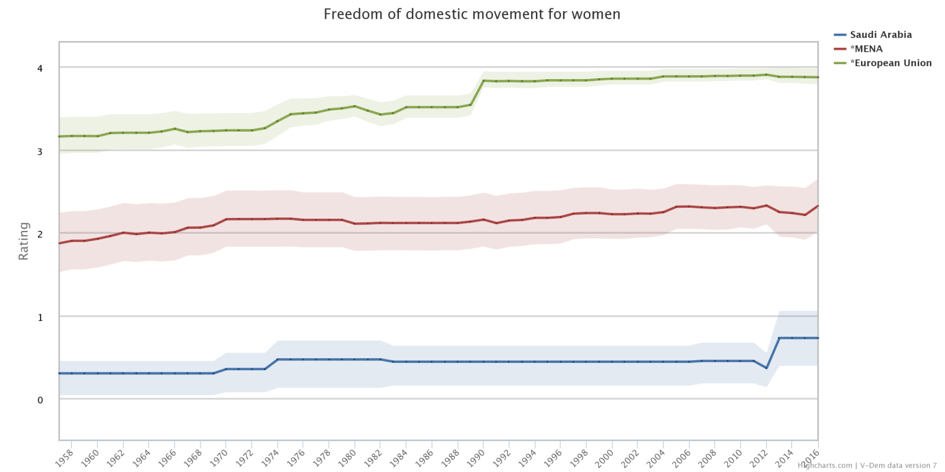Saudi Arabia and freedom of domestic movement for women
By: V-Dem Staff
Oct 13, 2017
On September 26, King Salman of Saudi Arabia declared that women are now allowed to drive, effectively ending a 60-year-old ban frequently targeted by women’s rights organizations. Although women are still required to have a male guardian in Saudi Arabia, recent efforts from groups both inside and outside of the country has put pressure on the regime. In turn, they have responded with small but similar reforms increasing the autonomy of women.
This week’s graph shows the evolution of freedom of domestic movement for women in Saudi Arabia, the MENA region, as well as in the European Union. The scale ranges from zero, indicating no freedom of movement for women at all, to four, virtually all women enjoy full freedom of movement. The values should not be seen as relative, meaning that the values does not reflect women’s relative freedom of domestic movement in comparison to men, but in absolute terms. Saudi Arabia follows the positive trend in the European Union, as well as in the region, however remaining on a level where only some women enjoy full freedom of movement but most do not. Nonetheless, the reversal of the driving ban and other reforms in this area will hopefully continue to increase women’s autonomy in Saudi Arabia, continuing the modest but positive trend we see in the V-Dem data.
To find out more about freedom of domestic movement for women in Saudi Arabia, or any other country in the world, use our online analysis tools at v-dem.net.


